News and events
Latest co-produced BBC TV series - Make it at Market
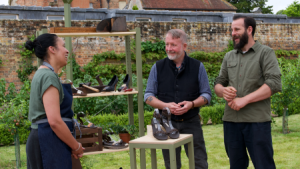
Emeritus Professor Richard Blundell and Director of CSSE Aqueel Wagha assist as academic leads for the latest 'Make it at Market’ TV series.
Main image copyright: Flabbergast TV | BBC
Driving innovation from within - The Intrapreneurship Series
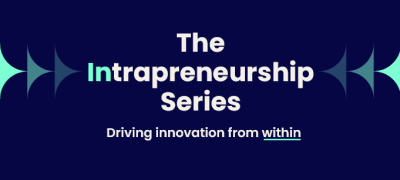
Keeping with the entrepreneurial theme, Aqueel Wagha supported with the production of a new four-part webinar series which aims to explore how organisations can cultivate innovation from within their own organisations.
Find out more: The Intrapreneurship Series: Driving innovation from within.
Event - What the UK Business Centre Lille can offer your business?
13 March 2024, 9:30am - 4:00pm
Location: OU Campus Milton Keynes

Business Development Unit (BDU), the Centre for Social and Sustainable Enterprise (CSSE) at the Open University, and TIN Ventures are hosting an event which offers your business bespoke and tailored support to access new European (EU) markets. This event will announce the launch of the Business Export Exchange Programme (BEEP) in collaboration with the UK Business Centre Lille. This British Chamber of Commerce was created with the support of the UK Department for Business and Trade to enable British companies to overcome any post-Brexit barriers they face when accessing the EU market, with many experiencing delays at the border, longer administrative procedures, language barriers and high legal and labour costs.
The UK Business Centre Lille will provide information about the tailored support available for established export-ready UK businesses and entrepreneurs with specific details on how you can leverage a range of incentives designed specifically to ensure a smooth transition into the French or other EU markets.
The interactive agenda will focus on sharing market insights and explaining an exciting range of export-ready benefits with a core focus on:
- Showcasing a wide range of service providers and specialists versed in all things trade and investment related including tax, logistics, and customs.
- Access to subsidised co-working space within 5-minutes walk from the Lille Eurostar terminal.
- Free, confidential, and cost-effective bespoke support services designed specifically to help British companies expand into high growth sectors and grow local supply chains located within the Hauts-de-France region.
There will be refreshments on arrival, and throughout the day. Lunch will be provided.
How smaller businesses can become net-zero influencers and enablers
What if all of the UK’s 48,000 hairdressing salons and barbershops started sharing water and energy-saving advice with their clients, alongside a clipper cut or a wash and blow dry? Previous studies have demonstrated that hairdressers can shape customers’ environmental behaviour with guidance they can trust and that relates to their everyday lives.
And it’s not just hairdressers. Cafes and restaurants are also addressing food-related emissions with carbon labelling schemes and more sustainable menu choices.
Recruiting smaller businesses to support the drive for net zero makes a lot of sense. More than half of the UK’s business emissions are estimated to come from its 6 million small and medium-sized enterprises (SMEs – companies with less than 250 employees). As the authors of a recent OECD report argue, there’s “no net zero without SMEs”.
Richard Blundel, Professor of Enterprise and Organisation and Director of the Centre for Social and Sustainable Enterprise (CSSE), writes for The Conversation about how smaller businesses can become net-zero influencers and enablers. Read the full article.
Investing in Sustainability: Exploring Sustainability in a Business School, Voluntary Sector and Capital Markets
3 July 2023, 11am - 12:30pm
Sustainability is an essential tool in the mission to achieve the United Nations Sustainable Development Goals. The potential for incorporating sustainability across an organisation is huge, and sustainability-oriented investing continues to produce powerful results in social, environmental, and economic progress.
The Open University Business School brought together academic, business and voluntary sector stakeholders in a webinar, to discuss the role of sustainability in public, private and voluntary sector organisations, and why investing in sustainability is key to an organisation's growth:
- Liz Moody (Moderator), Director of Executive Education at Open University Business School.
- Christopher Mahon, CFA, Fund manager at Columbia Threadneedle and Visiting Fellow at Open University Business School
- Dr Helen Britton, educational practitioner, researcher, entrepreneur, Visiting Fellow at Centre for Voluntary Sector Leadership at Open University Business School.
- Dr Anja Schaefer, Senior Lecturer in Management and Sustainability Lead for Open University Business School.
- What is sustainability and why is it important?
- How do organisations incorporate sustainability into their strategies and practices?
- What role do business schools play in furthering sustainability?
- What are the sustainability challenges that are still in place, and what needs to be done moving forwards?
Recruitment of a Post-Doc Position
The CSSE has recently advertised a new Post Doc position in Social and Sustainable Innovation. The selected candidate will develop skills in leading, managing and researching co-creation projects. They will assist the team in developing the social innovation lab and process in collaboration with the Scottish research infrastructure partner, contribute to the project planning and coordinate activities across project collaborators. The post is for 26 months with ideal starting time in November 2023.
Visiting Seminar
Dr Francesca Calo has recently visited SUPSI where she presented on the contradictions of UK active labour market policies for refugees and asylum seekers. The paper presented is available at: “You have to work…but you can’t!”: Contradictions of the Active Labour Market Policies for Refugees and Asylum Seekers in the UK | Journal of Social Policy | Cambridge Core
‘Mission Zero’: SSE research on SMEs cited in two Net Zero policy reviews
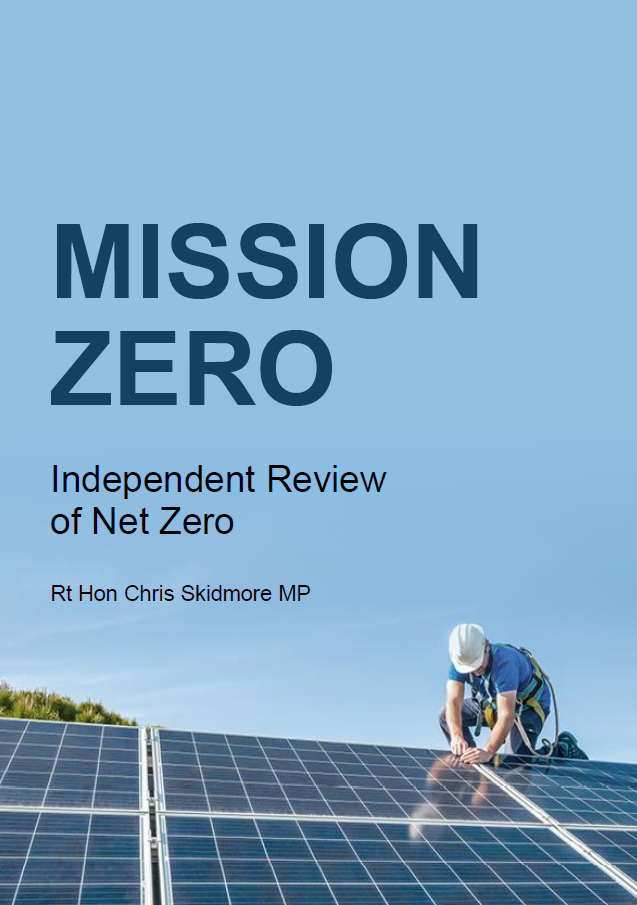
Findings from a recent study by Richard Blundel and colleagues from the Energy Saving Trust have been cited in two recent reviews.
The team’s work was featured in the Climate Change Committee’s Progress Report to Parliament (June 2022) , and subsequently quoted in ‘Mission Zero’, the independent review of the UK’s Net Zero policy conducted by Chris Skidmore MP, which was published in January.
The team called for a number of changes to accelerate the Net Zero transition. These included a stronger Government framework to address the complexities of small and medium-sized enterprise (SME) decarbonisation; better coordination and knowledge-sharing between national, regional and local initiatives; a more effective triaging process to deliver tailored support to SMEs based on their geographic location and industry sector; a new financing strategy to address cost barriers and facilitate access to private capital; and a strengthened role for low carbon advisors and auditors.
Mission Zero also drew on evidence that Richard, who leads our Centre for Social and Sustainable Enterprise (CSSE), collated on behalf of the Zero Emissions Enterprise (ZEE) Network, a multi-disciplinary grouping of more than 60 researchers working in this area.
A European Network of Research Infrastructures for CO2 Transport and Injection (ENCASE)
SSE cluster members have been successful in being award a new Horizon Europe funded project on the development of a European Network of Research Infrastructure for CO2 Transport and Injection. Francesca Calo and Aqueel Wahga will be working with Business School colleagues Ali Atuallah, Edoardo Ongaro and Alessandro Sancino. The Open University team will be involved in developing and evaluating social innovation labs, processes and initiatives to integrate the research infrastructure in the local communities. Social innovation labs will be a space that favours the development of co-creation initiatives, involving different stakeholders. The co-creation processes and resulting projects will focus upon environmental sustainability and the integration of the research infrastructures in their local contexts. The project started in January 2022 and will continue until mid-2025.
Two new scholarship projects for 2023
SSE cluster members have been awarded two new SciLAB scholarship projects, which will be undertaken during 2023. One project aims at developing, through analysis of existing incubators, the feasibility of setting up a virtual incubator and accelerator that can support our students in the Innovation and Enterprise pathway in improving their employability and enhancing their entrepreneurial journey. The second project focuses on investigating the potential implementation, in entrepreneurship modules, of an intervention to improve the final performance marks for ethnic minorities students. More information on the projects and their results will be available in the next future.
Research action for SME net zero transitions

Date: 20th July 2022, 11:00-15:30
Location: Sheffield Hallam University, Sheffield
This face to face workshop has been organised by the newly-formed ZEE (Zero Emissions Enterprise) network, a group of researchers with an interest in the decarbonisation of SMEs, including Prof Will Eadson (Sheffield Hallam University), Dr Sam Hampton and Dr Tina Fawcett (University of Oxford) and Prof Richard Blundel (Social and Sustainable Enterprise research cluster, The Open University Business School). It follows two successful online events, organised during the last year.
The Sheffield workshop aims to produce a call to action for SME decarbonisation research, setting the agenda for future investigation. This Call is an open invitation to those investigating SME decarbonisation to take part in building this manifesto. The workshop will also provide opportunity to share findings, perspectives and provocations in the spirit of developing this collective research agenda. We also hope to produce a short video on the day, with opportunities for informal contributions by workshop participants.
The workshop was funded by Sheffield Hallam University’s Social and Economic Research Institute.
SSE Social Enterprise UK membership
The Open University continues its membership with Social Enterprise UK (SEUK), the biggest network of social enterprise in the UK. Being members of Social Enterprise UK gives us the opportunity to attend networking events focused on social enterprise, to access social enterprise events, to participate to specific events for promoting policies related to social enterprise. If you are interested in specific topics and events promoted by SEUK, you can contact Francesca Calo so she can share invitation and information.
ISIRC Conference: Panel Chairing
Francesca Calo has co-chaired a panel titled “Migrants’ economic, social and political inclusion: what role for social innovation” at the International Social Innovation Research Conference 2021. Papers included in the panel explored social innovation initiatives that have occurred in the broad field of migration, either as first help or more long-term integration seeking programs and actions.

September 2021: Eco-innovation and Green Start-ups: An Evidence Review – new report published by the Enterprise Research Centre
Richard Blundel and Sam Hampton’s insight report examines ‘green’ start-up ventures and other forms of eco-innovation in which SMEs play an active role . It reviews recent evidence on entrepreneurial and innovative initiatives that address specific environmental challenges, including the Climate Emergency. This is a companion piece to their recent SOTA (state of the art) review for the Enterprise Research Centre, ‘SMEs and Net Zero’, which was published in July 2021.
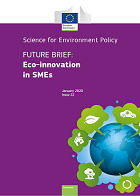
January 2020: Promoting eco-innovation in SMEs– a new European Commission ‘Future Brief’ report
Together SMEs make up over 99% of all enterprises in the EU, accounting for two-thirds of total employment. Though the environmental footprints of individual firms may be relatively small, their collective impact is much more significant.
Richard Blundel was scientific advisor for this independently authored report, ‘Eco-innovation in SMEs’, which presents some of the latest research, evidence and trends, seeking to understand which particular measures can best help SMEs to act on their key drivers, overcome their key barriers, and innovate towards more sustainable, resource-efficient, eco-friendly business.
The report is now available on the European Commission website.
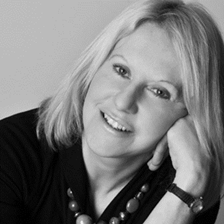
Tuesday 15 October 2019: Talk by Prof Susan Marlow, ‘Publishing World-Leading Research in Entrepreneurship and Small Business’
Room 2, Michael Young Building, Walton Hall, Milton Keynes.
Professor Susan Marlow will share insights she has gained from her experience as a world-leading researcher and as Editor of the International Small Business Journal (ISBJ) (2009-16), one of the top international academic journals in the area of entrepreneurship. Join us at this event, organised in collaboration with the Social and Sustainable Entrepreneurship (SSE) research cluster, DSM and PuLSE for useful discipline-specific tips and advice. Numbers are strictly limited to provide an opportunity for participants to ask specific questions and discuss their publishing plans. The first in a new occasional series on publishing in leading academic journals. Hosted by: Liz Daniel and Richard Blundel.

Tuesday 18 June 2019: Seminar - ‘Dynamics and trends in the off-grid power sector: selected cases across Africa’
SSE cluster members participated in this seminar, which was organised by Dr Charles Mbalyohere of the Department of Strategy and Marketing.
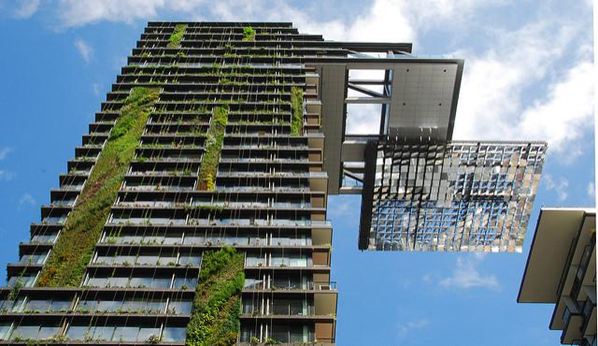
Wednesday 20 March 2019: Social and Sustainable Enterprise (SSE) research cluster launch workshop.
This interactive workshop discussed next steps in developing the cluster.



